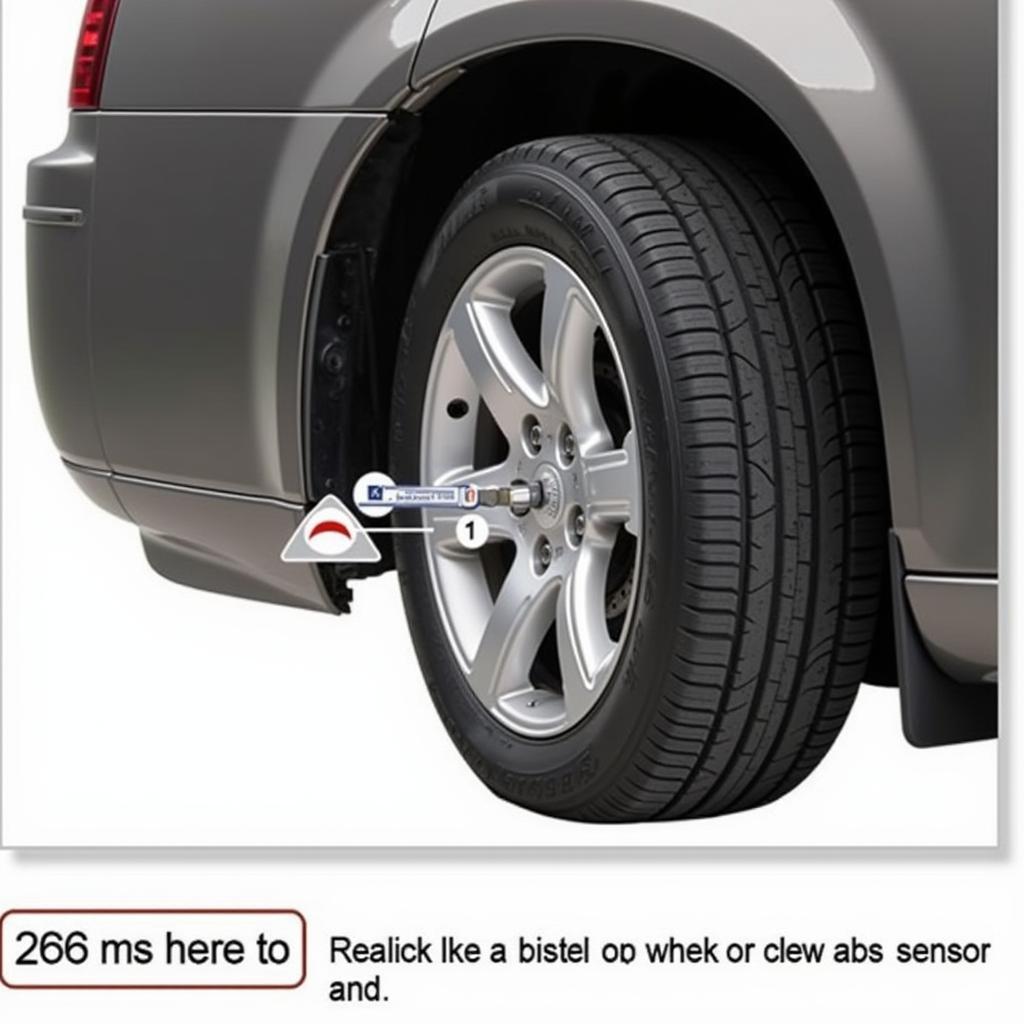The Audi S3 is a high-performance vehicle that demands a lot from its braking system. So, when the brake pad warning light pops up on your dashboard, it’s crucial not to ignore it. This article dives deep into the common causes of the Audi S3 brake pad warning light and provides you with the knowledge to address the issue effectively.
Understanding Your Audi S3 Brake Pad Warning Light
Your Audi S3 is equipped with a sophisticated sensor system that monitors the condition of your brake pads. When the sensors detect that the brake pad material has worn down to a certain level, the brake pad warning light on your dashboard illuminates. This is a clear signal that it’s time to inspect and likely replace your brake pads.
Common Causes of an Illuminated Brake Pad Warning Light
While worn brake pads are the most common culprit behind the warning light, several other factors could be at play:
- Worn Brake Pad Sensors: The sensors themselves can wear out or get damaged over time, triggering a false warning.
- Damaged Brake Pad Wiring: A short or break in the wiring harness connecting the sensors to the car’s electrical system can interrupt the signal and illuminate the warning light.
- Faulty Brake Pad Sensor Connector: Corrosion or loose connection at the sensor connector can hinder proper signal transmission, leading to an inaccurate warning.
- Extreme Driving Conditions: Frequent heavy braking, driving on steep hills, or towing heavy loads can accelerate brake pad wear and tear, potentially causing the warning light to illuminate earlier than expected.
Diagnosing the Problem: Steps to Take
- Consult Your Owner’s Manual: Your Audi S3 owner’s manual is an invaluable resource that provides specific information regarding your car’s warning lights and recommended maintenance schedules.
- Visually Inspect Your Brake Pads: If you’re comfortable doing so, carefully examine your brake pads through the spaces between the wheel spokes. Look for signs of significant wear, such as minimal pad material remaining.
- Check for Warning Light Patterns: Pay attention to how the brake pad warning light behaves. Does it flash intermittently or remain constantly illuminated? Different patterns can offer clues about the underlying issue.
- Utilize Diagnostic Tools: Advanced diagnostic tools, accessible to professional mechanics or those with technical expertise, can retrieve specific fault codes stored in your Audi S3’s onboard computer. These codes provide detailed insights into the root cause of the warning light.
Addressing the Issue: Repair or Replacement?
Depending on the diagnosis, addressing the brake pad warning light might involve:
- Brake Pad Replacement: If the brake pads are worn down to the minimum thickness level, replacing them is crucial for maintaining optimal braking performance and safety.
- Brake Pad Sensor Replacement: If the sensors are damaged or faulty, they’ll need to be replaced to ensure accurate monitoring of your brake pad condition.
- Wiring Repair or Replacement: Any damaged or frayed wiring within the brake pad sensor system should be promptly repaired or replaced to restore proper electrical connection.
- Connector Cleaning or Replacement: If corrosion or a loose connection at the sensor connector is detected, cleaning the contact points or replacing the connector altogether can reestablish a reliable signal.
The Importance of Professional Expertise
While some Audi S3 owners possess the skills and knowledge to diagnose and address brake-related issues independently, it’s generally advisable to seek assistance from qualified professionals. Certified Audi technicians have the experience, specialized tools, and access to genuine parts to ensure accurate diagnosis and reliable repairs.
Preventing Future Issues: Proactive Maintenance Tips
- Adhere to Recommended Maintenance Schedules: Your Audi S3 owner’s manual outlines specific intervals for brake system inspections and maintenance. Following these recommendations can help prevent unexpected issues and ensure the longevity of your brake components.
- Practice Smooth Braking: Avoid harsh or aggressive braking habits, as they can accelerate brake pad wear. Gradual and controlled braking puts less stress on the entire system.
- Be Mindful of Driving Conditions: Driving in hilly or mountainous areas, frequent city driving with stop-and-go traffic, and towing heavy loads can all contribute to increased brake pad wear. Adjust your driving style and maintenance schedule accordingly.
“Regular maintenance is key to preventing unexpected brake issues,” advises Mark Schmidt, a seasoned Audi mechanic with over 15 years of experience. “By addressing minor concerns proactively, you can avoid potentially costly repairs down the line.”
Conclusion
The brake pad warning light in your Audi S3 is a crucial safety feature that should never be ignored. By understanding the potential causes, knowing how to diagnose the problem, and taking prompt action, you can ensure the optimal performance and safety of your Audi S3’s braking system. Remember, proactive maintenance is always the best approach to prevent unexpected issues and keep your driving experience safe and enjoyable.
audi s3 brake pad warning light
FAQs
Q: How long can I drive with the brake pad warning light on?
A: It’s not recommended to drive with the brake pad warning light on. Continued driving can lead to further damage and compromise braking performance.
Q: Can I replace my Audi S3 brake pads myself?
A: While it’s technically possible, brake pad replacement requires mechanical expertise. It’s generally recommended to have a qualified mechanic perform this task.
Q: How often should I replace my Audi S3 brake pads?
A: Brake pad lifespan varies depending on driving style and conditions. Consult your owner’s manual for recommended service intervals.
Q: Are aftermarket brake pads okay to use in my Audi S3?
A: While aftermarket options are available, it’s generally recommended to use genuine Audi brake pads for optimal performance and compatibility.
Q: What other warning lights might indicate a brake system problem?
A: Besides the brake pad warning light, other warning lights like the ABS light or the Electronic Stability Control (ESC) light might also indicate potential brake system issues.

